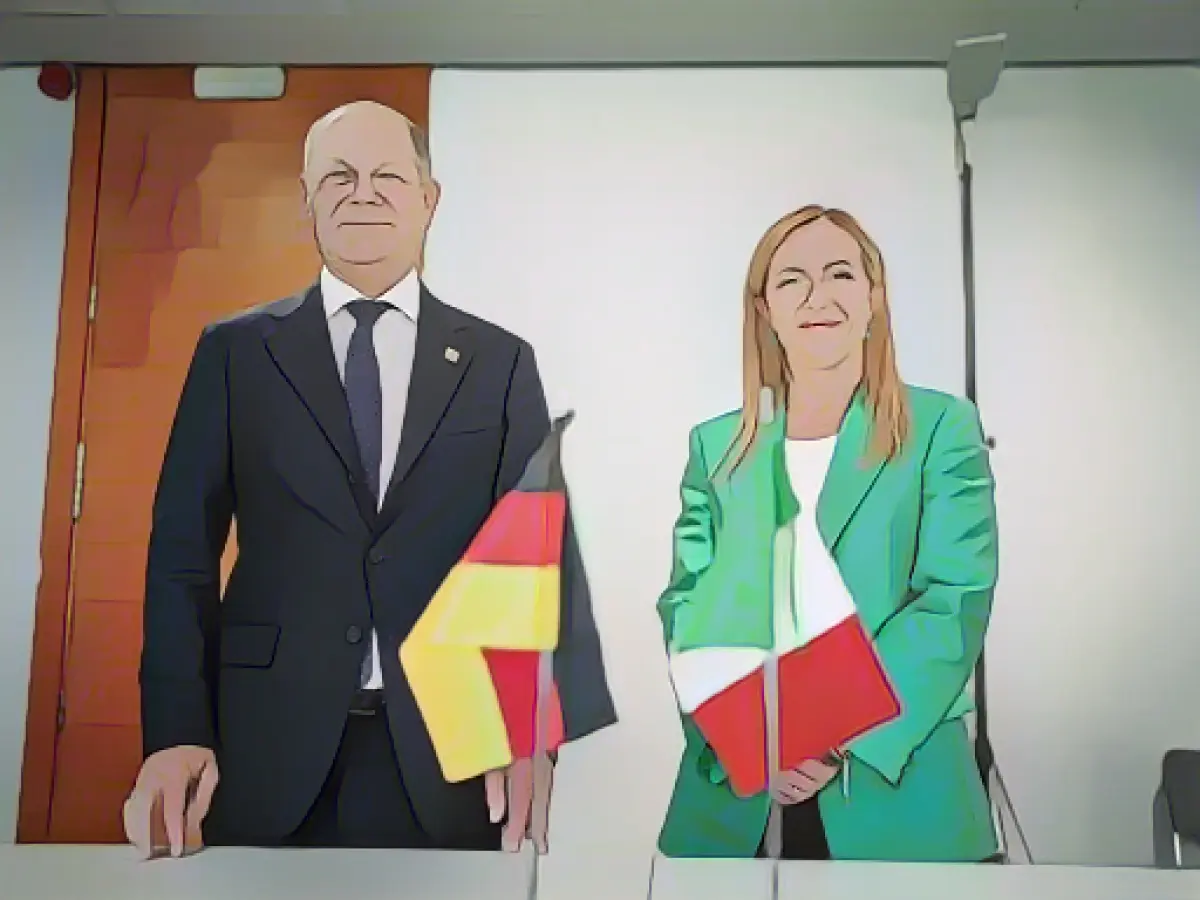Italy's Workers Stuck in a Wage Rut
In a stark contrast to its European neighbors, Italy refuses to grant its workers a minimum wage of nine euros per hour. This disappointing reality emerged after the Roman government, led by Prime Minister Giorgia Meloni, voted against introducing such a legislation.
Ironically, Germany was once in a similar predicament, with workers earning less than ten euros an hour. However, the tides have turned, and the minimum wage in Germany now stands at twelve euros. Italy seems to be clinging onto the past, making it one of only five EU member states without a statutory minimum wage.
The Italian opposition, led by the social democratic Partito Democratico (PD), vocalized its disapproval of the decision. The leader of the PD, Elly Schlein, described it as a "sad day for the Republic" and a "slap in the face" for the exploited workers. The opposition staged a dramatic protest inside the parliament, shouting "Shame, shame!" to show their indignation.
The Twist in the Tale
Interestingly, the original proposal for a minimum wage of nine euros per hour came from the Italian center-left opposition. However, the bill was rejected, and its essence was transformed into a requirement for the government to guarantee "adequate" and "sufficient" wages for its citizens.
The Meloni government vehemently argued against implementing a statutory minimum wage, suggesting national collective bargaining practices instead. Labor Minister Marina Elvira Calderone stated that the government would focus on the "coverage" of collective agreements, rather than an "exact figure."
The current collective agreements in several Italian industries, such as cleaning and tourism, reveal a harsh reality. Workers in these sectors earn significantly less than nine euros per hour, with wages as low as 6.52 euros in the cleaning industry and 7.48 euros in the tourism sector.
The Majority's Demand
Surveys reveal that around 70% of Italians support the introduction of a minimum wage. The demand for a living wage is not limited to the left-wing, as a majority of voters from right-wing parties also support the notion. Apart from Italy, only Denmark, Finland, Austria, and Sweden do not have a statutory minimum wage within the EU.
In conclusion, despite the overwhelming support from the majority of Italians, the Meloni government has decided against introducing a minimum wage. Instead, the government has given itself six months to ensure "adequate" and "sufficient" wages without a statutory wage floor. This decision has been widely criticized by the opposition, who argue that it will continue to exploit workers.








